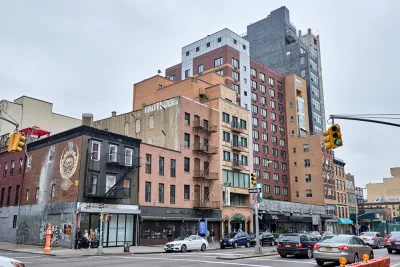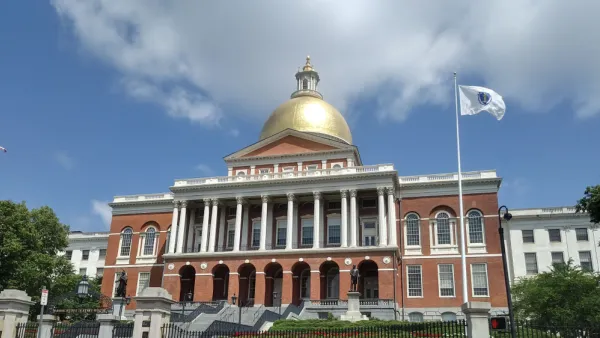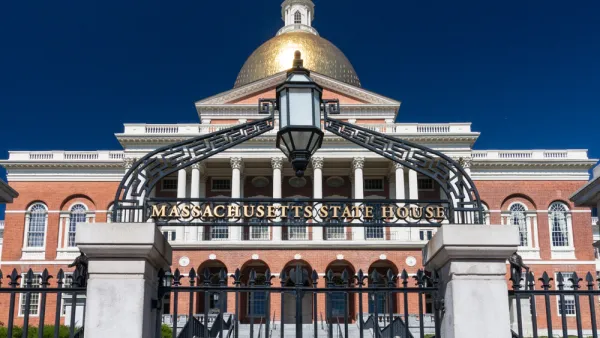Far from an obscure, wonky local issue, zoning reform has the potential to advance social justice in American cities.

The recent focus on the effects of exclusionary zoning is a crucial part of reforming housing policy and addressing discrimination and racism in housing and land use in the United States, writes Richard D. Kahlenberg in the New York Times. "Although zoning may seem like a technical, bureaucratic and decidedly local question, in reality the issue relates directly to three grand themes that Joe Biden ran on in the 2020 campaign: racial justice, respect for working-class people and national unity." Eliminating "economically discriminatory zoning policies," argues Kahlenberg, is a crucial step toward advancing those campaign goals.
"Removing exclusionary barriers that keep millions of Black and Hispanic people out of safe neighborhoods with strong schools is central to the goal of advancing racial justice." Despite a Supreme Court decision that struck down racial zoning in 1917, new policies like single-family zoning and redlining soon took its place, effectively creating the same barriers for families of color. "Racial discrimination has created an enormous wealth gap between white and Black people, and single-family-only zoning perpetuates that inequality." In fact, "the most restrictive zoning is found in politically liberal cities, where racial views are more progressive," relying on mechanisms that separate households by income and class to keep neighborhoods segregated. "Class discrimination helps explain why, despite a 25 percent decline in Black-white residential segregation since 1970, income segregation has more than doubled."
Reforming zoning, writes Kahlenberg, is necessary for achieving racial and economic justice. "After decades of federal inaction on this issue, Congress must move boldly to embrace the country’s anti-racist and anti-elitist mood to remove state-sponsored barriers that divide the nation’s people."
FULL STORY: If You Care About Social Justice, You Have to Care About Zoning

Analysis: Cybertruck Fatality Rate Far Exceeds That of Ford Pinto
The Tesla Cybertruck was recalled seven times last year.

National Parks Layoffs Will Cause Communities to Lose Billions
Thousands of essential park workers were laid off this week, just before the busy spring break season.

Retro-silient?: America’s First “Eco-burb,” The Woodlands Turns 50
A master-planned community north of Houston offers lessons on green infrastructure and resilient design, but falls short of its founder’s lofty affordability and walkability goals.

Test News Post 1
This is a summary

Analysis: Cybertruck Fatality Rate Far Exceeds That of Ford Pinto
The Tesla Cybertruck was recalled seven times last year.

Test News Headline 46
Test for the image on the front page.
Urban Design for Planners 1: Software Tools
This six-course series explores essential urban design concepts using open source software and equips planners with the tools they need to participate fully in the urban design process.
Planning for Universal Design
Learn the tools for implementing Universal Design in planning regulations.
EMC Planning Group, Inc.
Planetizen
Planetizen
Mpact (formerly Rail~Volution)
Great Falls Development Authority, Inc.
HUDs Office of Policy Development and Research
NYU Wagner Graduate School of Public Service




























